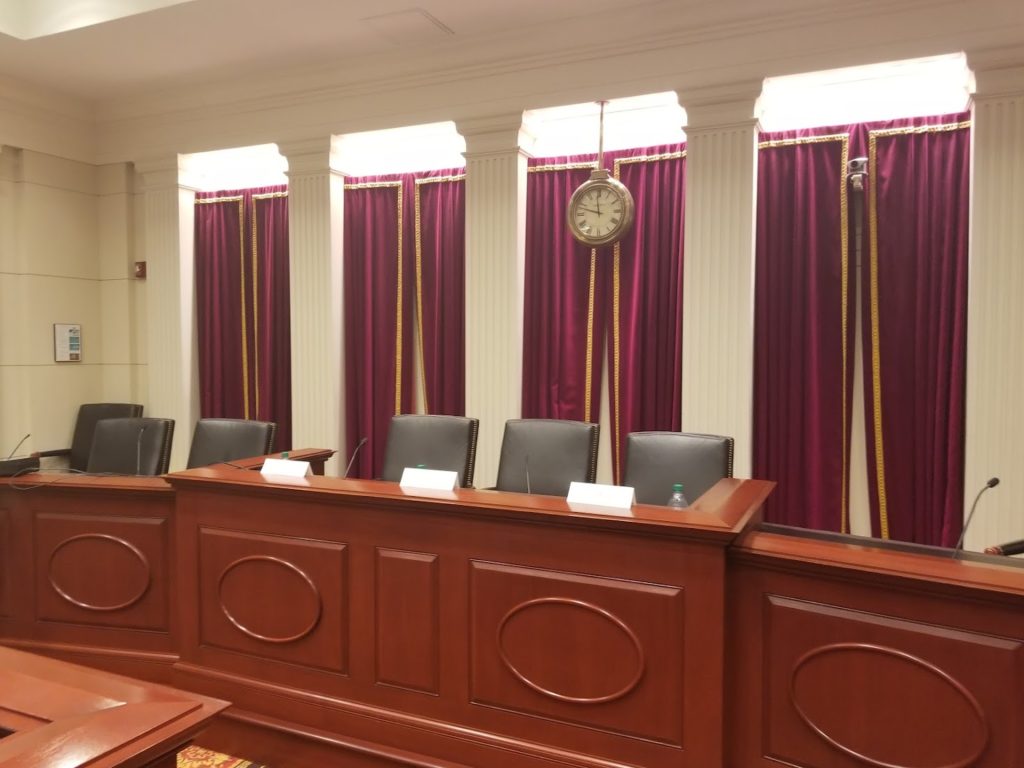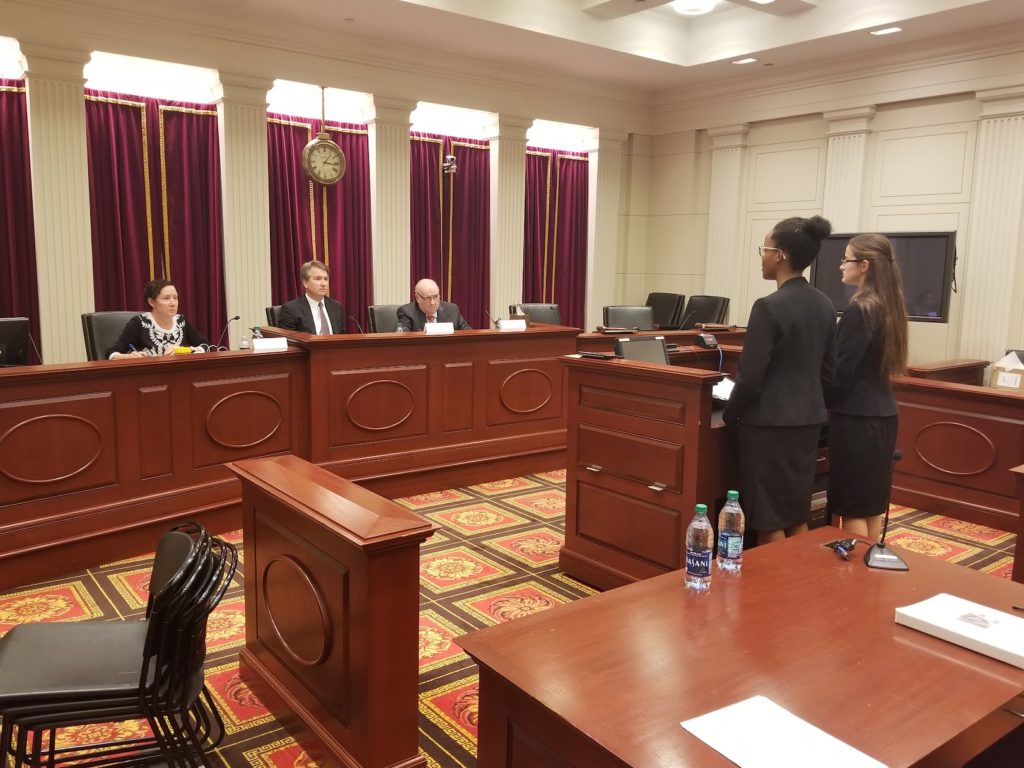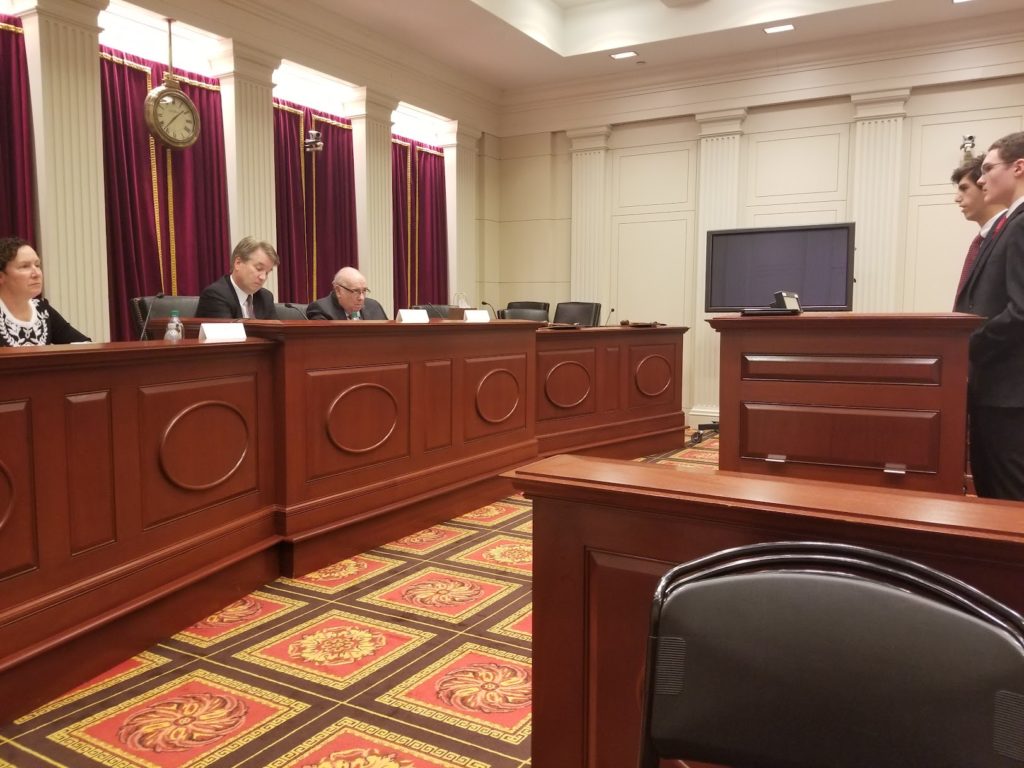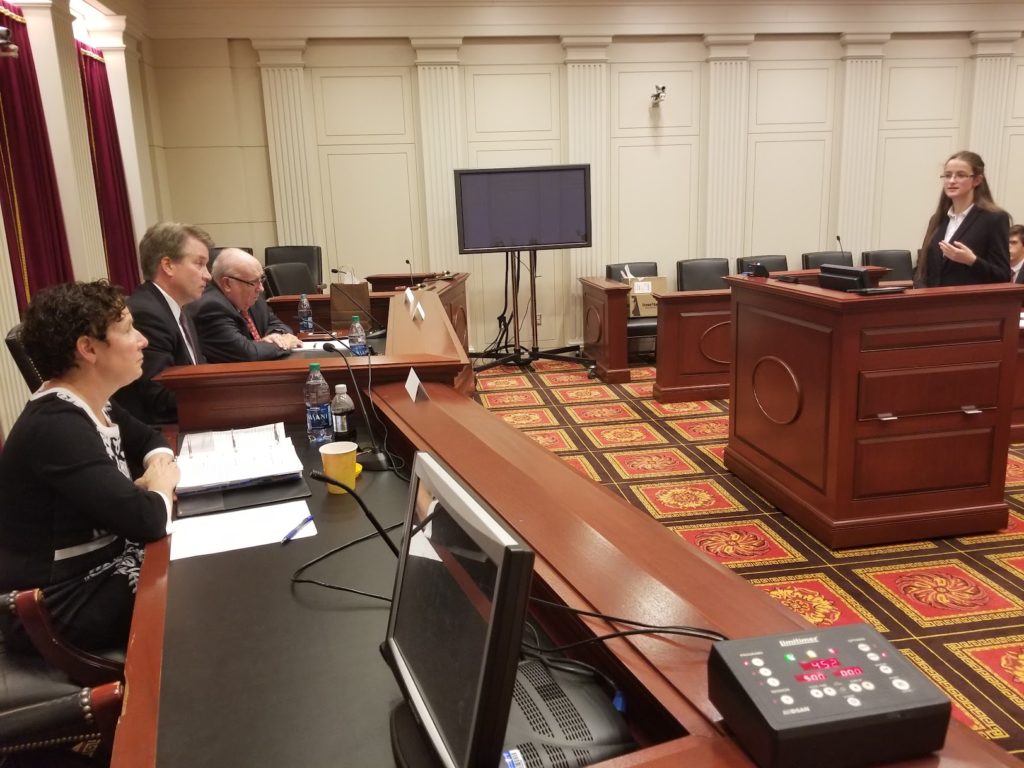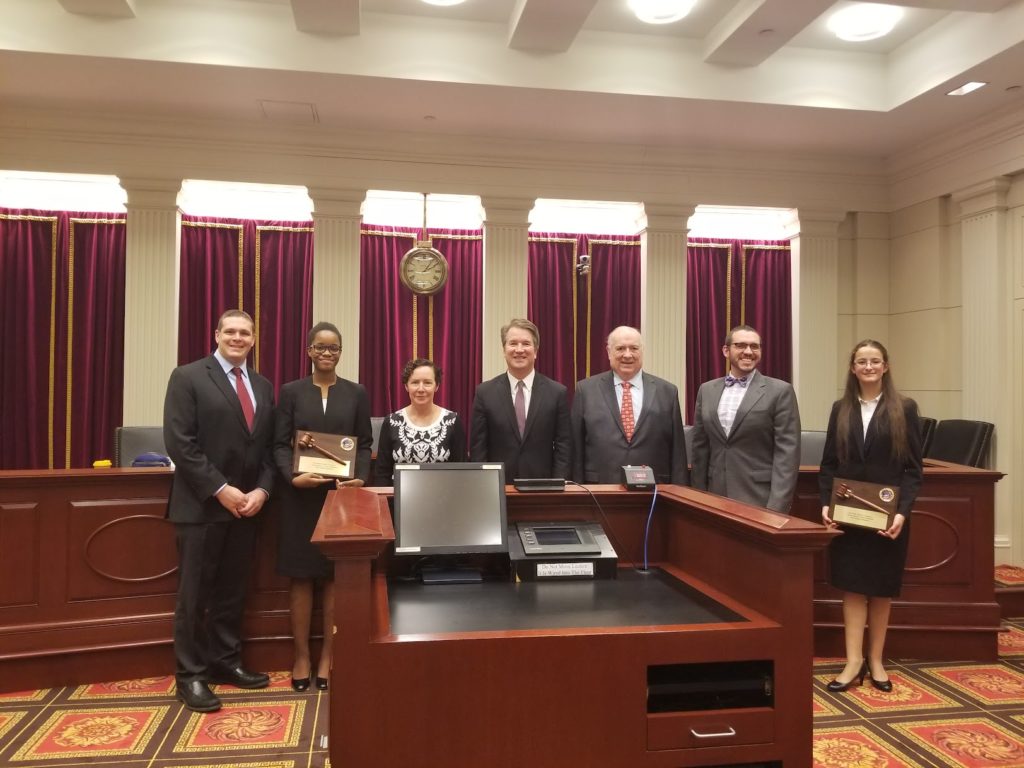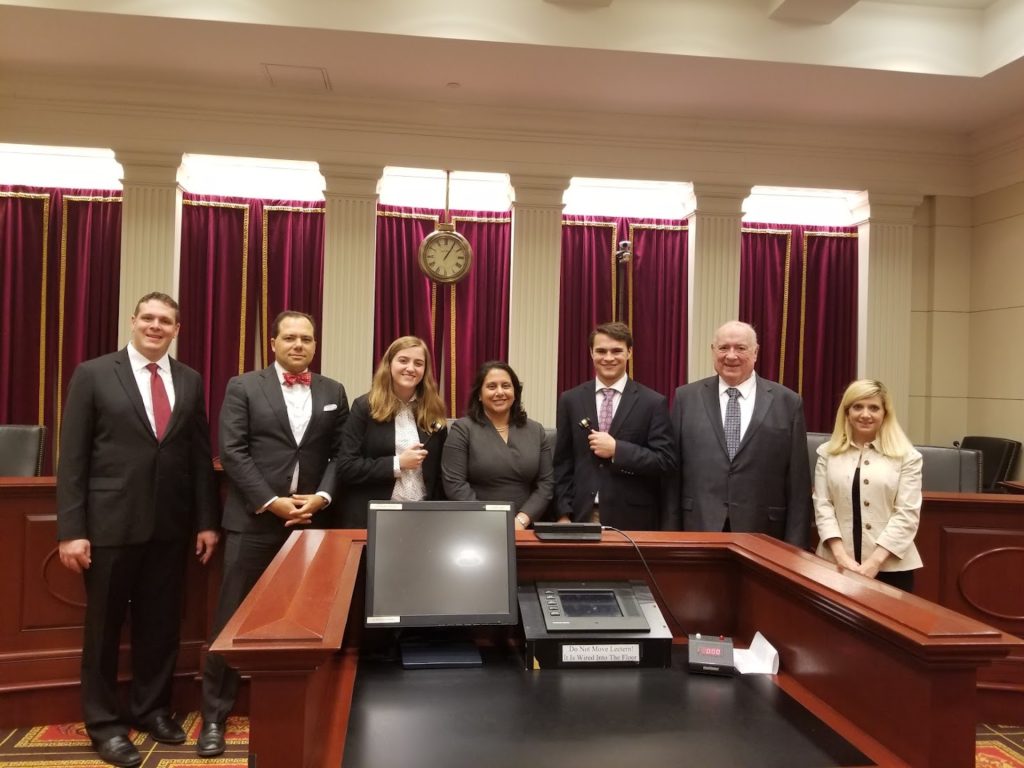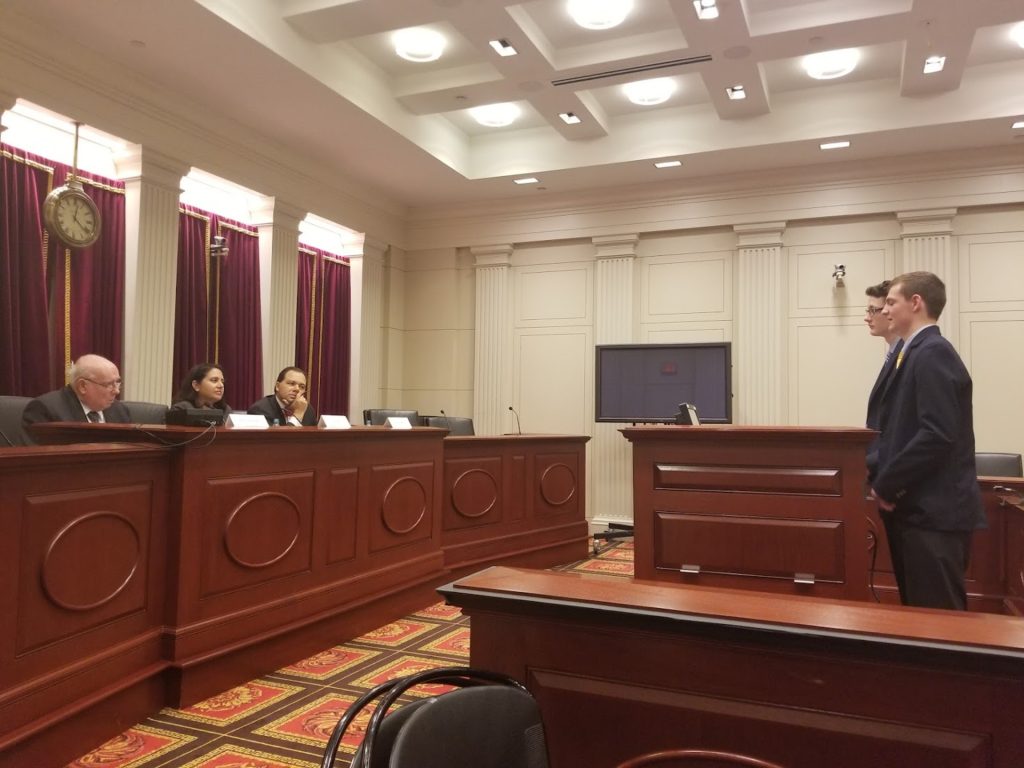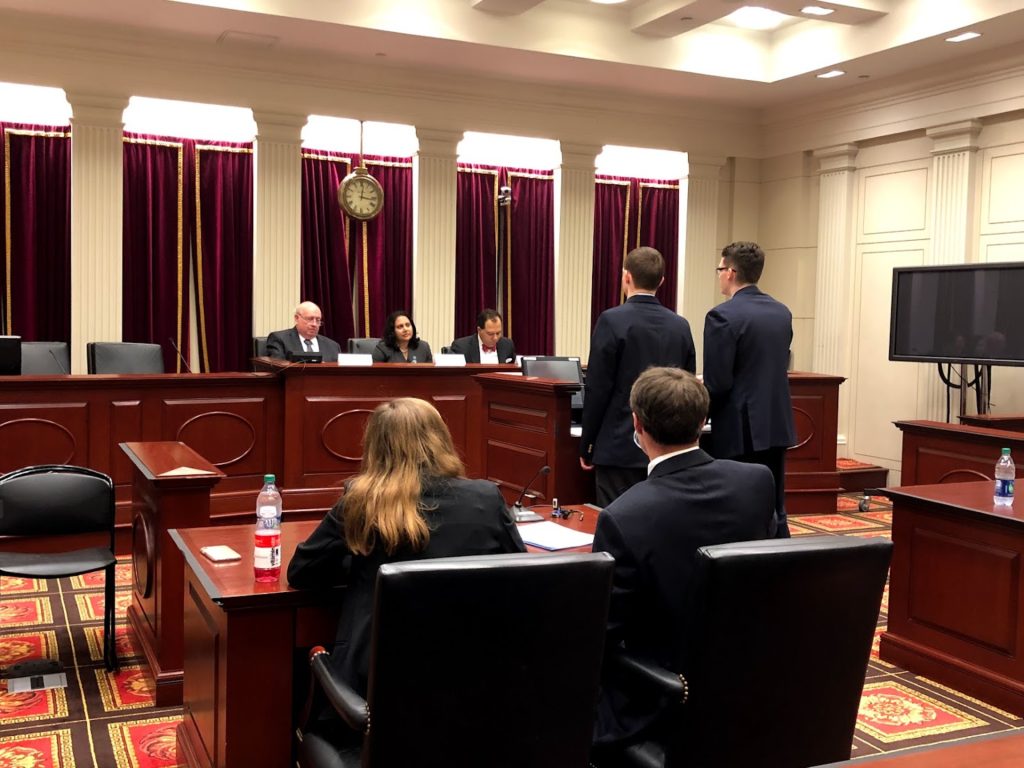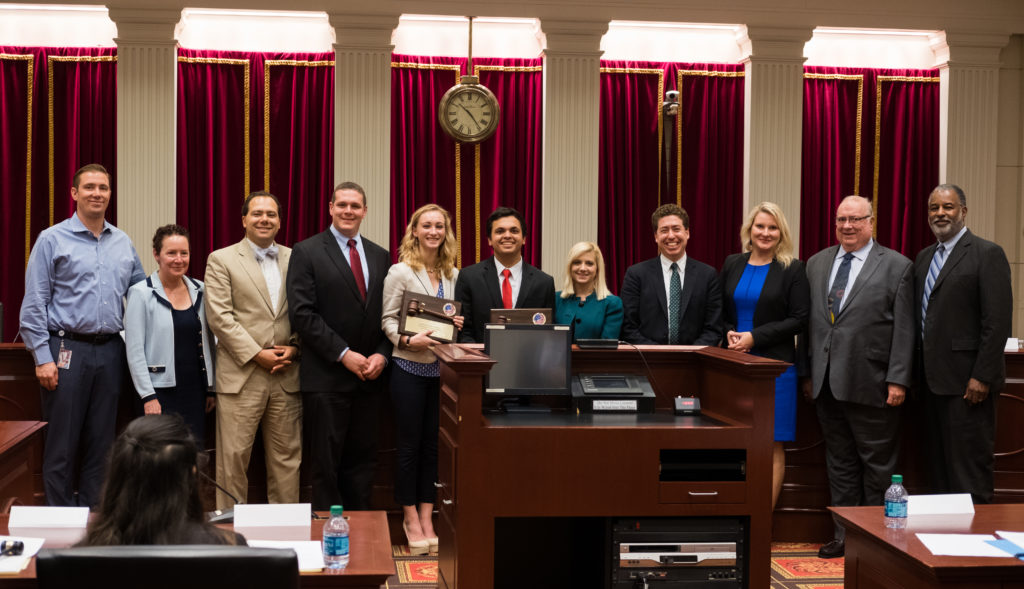Moody v. Netchoice
United States Court of Appeals for the Eleventh Circuit - Opinion (May 23, 2022)
Supreme Court Docket No. 22-277 (docketed on August 11, 2022)
Certiorari granted by the United States Supreme Court (September 29, 2023)
Oral Argument Scheduled for TBD.
Case Information
- Petitioners: Ashley Moody, Attorney General of Florida
- Respondents: NetChoice
Supreme Court Filings
Briefs from Florida:
Briefs from NetChoice:
- Brief of Netchoice in opposition to certiorari
- Petition for Writ of Certiorari
- Reply Brief
- Supplemental Brief of NetChoice
Amicus Briefs in support of States:
- Brief of the United States
- Brief of Ohio in support of Florida
- Brief of Professor Phillip Hamburger in support of neither party
- See also NetChoice v. Paxton (5th Circuit)
Amicus Briefs in support of NetChoice:
Supreme Court Precedents
- NetChoice, LLC v. Paxton, 142 S. Ct. 1715 (2022).
- Biden v. Knight First Amend. Inst. at Columbia Univ., 141 S. Ct. 1220 (2021).
- Nat’l Inst. of Family Life Advocates v. Becerra, 138 S.Ct. 2361 (2018).
- Packingham v. North Carolina, 137 S. Ct. 1730 (2017).
- Reed v. Town of Gilbert, 576 U.S. 155 (2015).
- Sorrell v. IMS Health Inc., 564 U.S. 552 (2011).
- Rumsfeld v. Forum for Acad. & Institutional Rights, Inc., 547 U.S. 47 (2006).
- Good News Club v. Milford Cent. Sch., 533 U.S. 98 (2001).
- Hurley v. Irish-Am. Gay, Lesbian & Bisexual Grp., 515 U.S. 557 (1995).
- Turner Broadcasting Sys., Inc. v. FCC, 512 U.S. 622 (1994).
- Zauderer v. Office of Disc. Counsel, 471 U.S. 626 (1985).
- PruneYard Shopping Center v. Robins, 447 U.S. 74 (1980).
- Wooley v. Maynard, 430 U.S. 705 (1977).
- Mia. Herald Publ’g Co. v. Tornillo, 418 U.S. 241 (1974).
- United States v. O’Brien, 391 U.S. 367 (1968).
- W. Va. State Bd. of Educ. v. Barnette, 319 U.S. 624 (1943).
Tournament Instructions
Teams of two high-school students will write an appellate brief, and present oral arguments, addressing these questions:
- These cases concern laws enacted by Florida and Texas to regulate major social media platforms like Facebook, YouTube, and X (formerly known as Twitter). The two laws differ in some respects, but both restrict platforms’ ability to engage in content moderation by removing, editing, or arranging user-generated content; require platforms to provide individualized explanations for certain forms of content moderation; and require general disclosures about platforms’ content moderation practices.
- The questions presented are:
- 1. Whether the laws’ content-moderation restrictions comply with the First Amendment.
- 2. Whether the laws’ individualized-explanation requirements comply with the First Amendment.
Petitioners will argue that laws' content moderation restrictions and individualized-explanation requirements do comply with the First Amendment.
Respondents will argue that laws' content moderation restrictions and individualized-explanation requirements do not comply with the First Amendment.
Phase 1 - Research and Write Your Brief
Coaches can register their teams at the Institute for Competition Sciences (ICS). ICS will generate a number for each team. Odd-numbered teams will represent the Petitioners and even-numbered teams will represent the Respondents.
Teams will research and write their briefs. Carefully review the lesson plan. The brief must be a minimum of 2,000 words. Please download this template. The brief should have the following sections:
- Table of Cited Authorities: List all of the original sources, and other documents you cite in your brief.
- Summary of Argument: State your position succinctly in 250 words or less.
- Argument: Structure your argument based on at least ten Supreme Court precedents. The more authorities you cite, the stronger your argument will be–and the more likely your team will advance.
- Conclusion: Summarize your argument, and argue how the Supreme Court should decide this issue.
Be sure to proofread your work. The work must be yours, and you may not seek help from anyone else–including attorneys or law students. Students who submit plagiarized briefs will be disqualified.
Please review the winning submissions from previous years:
- OT 2022 - Students for Fair Admissions v. Harvard
- OT 2021 - New York State Rifle & Pistol Association v. Bruen
- OT 2020 – Torres v. Madrid
- OT 2019 – Espinoza v. Montana Department of Revenue
- OT 2018 – Timbs v. Indiana
- OT 2017 – Carpenter v. United States
- OT 2016 – Trinity Lutheran Church v. Comer
- OT 2015 – Abigail Fisher v. University of Texas, Austin (II)
- OT 2014 – Zivotofsky v. Kerry
- OT 2013 – National Labor Relations Board v. Noel Canning
- OT 2012 – Abigail Fisher v. University of Texas, Austin (I)
Phase 2 - Virtual Mentoring
Teams that register before November 3, 2023 will be invited to participate in a virtual mentoring session. These sessions will be hosted during the week of November 27, 2023. The Harlan Institute will match each class with a mentor from our network. These sessions will be helpful to finalize your briefs and prepare your preliminary round arguments.
Phase 3 - Preliminary Round
For the preliminary round, each team must prepare a YouTube video. The argument must be at least 15 minutes in length. Coaches will ask their students the following ten questions:
- Why is social media so important today?
- How does the Florida law restrict social media platforms’ ability to engage in content moderation by removing, editing, or arranging user-generated content?
- How does the Florida law require social media platforms to provide individualized explanations for certain forms of content moderation?
- Why did Florida enact its social media law?
- What tier of scrutiny should the Court review Florida's law with?
- Do social media platforms resemble newspapers, which can control their editorial content?
- Does the compelled speech doctrine protect the rights of social media companies?
- Do the social media platforms engage in commercial speech?
- Will the Florida law increase or decrease free speech on social media?
- Does the Florida law create a slippery slope towards censorship?
Teams will upload a PDF of their brief, as well as a link to their YouTube video to the Institute of Competition Sciences. The deadline for the preliminary round will be December 15, 2023. The brief and preliminary round video will be scored based on this rubric.
Phase 4 - Virtual Rounds
We will hold the Virtual Rounds over Zoom:
- 2/13/23 and 2/15/23: Semifinal Round
- 2/27/23 and 3/1/23: Round of 8
- 3/27/23 and 3/29/23: Round of 4
The virtual rounds will be scored based on this rubric. This video offers five tips to prepare for oral argument:
Phase 5 - Championship Round Rounds
The top teams will receive a free trip to Washington, D.C. to argue the championship round before federal judges the week of April 29, 2024.

